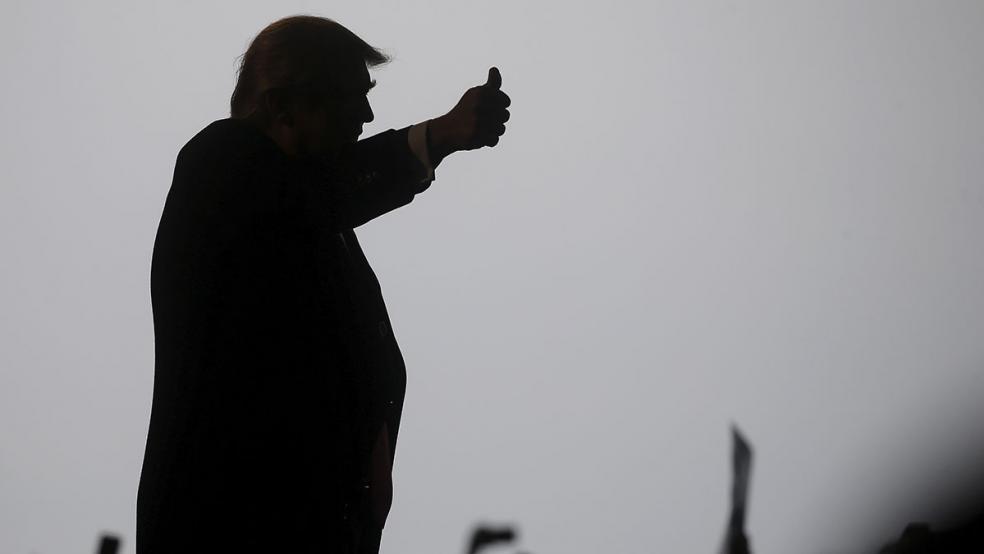As the last pockets of resistance to Donald Trump within the Republican Party establishment begin to crumble, House Speaker Paul Ryan is fighting a rear-guard action, trying to preserve a small piece policymaking territory within the GOP. In furtherance of that goal, he announced on Thursday that the House would begin rolling out an ambitious policy agenda called “Confident America.”
The agenda will lay out proposals in six different areas: poverty and opportunity, tax reform, regulatory reform, national security, healthcare, and what Ryan refers to as “constitutional authority,” mainly focusing on rolling back President Obama’s executive actions.
Related: Trump Clinches the Nomination, Then Gives the GOP New Reasons to Worry
“What you will see with these are detailed policy papers,” Ryan said. “We’re not talking about principles here. This is substance. It’s going to be a clear explanation of the policy changes that are needed in these areas.”
Ryan has declined to endorse Trump so far and has used his position as the nation’s top elected Republican to try to rein in the billionaire’s overblown rhetoric and lack of seriousness on policy. The move to put forward a detailed set of policy proposals in advance of the nominating convention is plainly an effort to signal that there are still Republicans in Washington interested in the details of governing the country.
But there is already evidence of a Trumpian fifth column inside Ryan’s House of Representatives, working to remake the policy agenda in Trump’s image.
While Ryan is assigning committee chairs to develop and propose in-depth proposals on a wide range of subjects, Trump supporter Pete Sessions (R-TX), the chair of the powerful Rules Committee has introduced what might be the Trumpiest-sounding bill ever put before the US Congress.
Related: Are Trump and Sanders Really Going to Debate?
The World's Greatest Healthcare Plan Act of 2016 (yes, that is actually a bill) is essentially another in the long string of efforts by House Republicans to repeal the Affordable Care Act, President Obama’s signature piece of domestic policy. The bill would retain many of the popular elements of the ACA -- no lifetime are annual limits, guaranteed acceptance and renewability, no exclusions for preexisting conditions, and more -- while eliminating the individual and employer mandates.
Many healthcare policy analysts view this as a complete non-starter, because it is the mandates that make all those popular elements of the ACA possible -- if people are allowed to wait until they are sick to buy insurance, as they would be under the Sessions bill, in exchange for a temporary 20 percent premium hike, the system is unsustainable.
Is it possible that, as Ryan rolls out his policy agenda over the coming weeks that Trump’s allies in the House will produce a competing series of bills?
Will a national security proposal developed under Ryan’s proposal be met with a “Make Our Military So Big, Powerful and Strong that Nobody Will Mess with Us” bill? Will a bill addressing economic growth be matched against the “Greatest Jobs Bill God Ever Created Act”?
A year ago, the suggestion would have seemed preposterous, but then again, so would the idea that a thrice-married former reality television star with no apparent interest in the details of public policy would be carrying the banner of the Republican Party into the general election this November.





